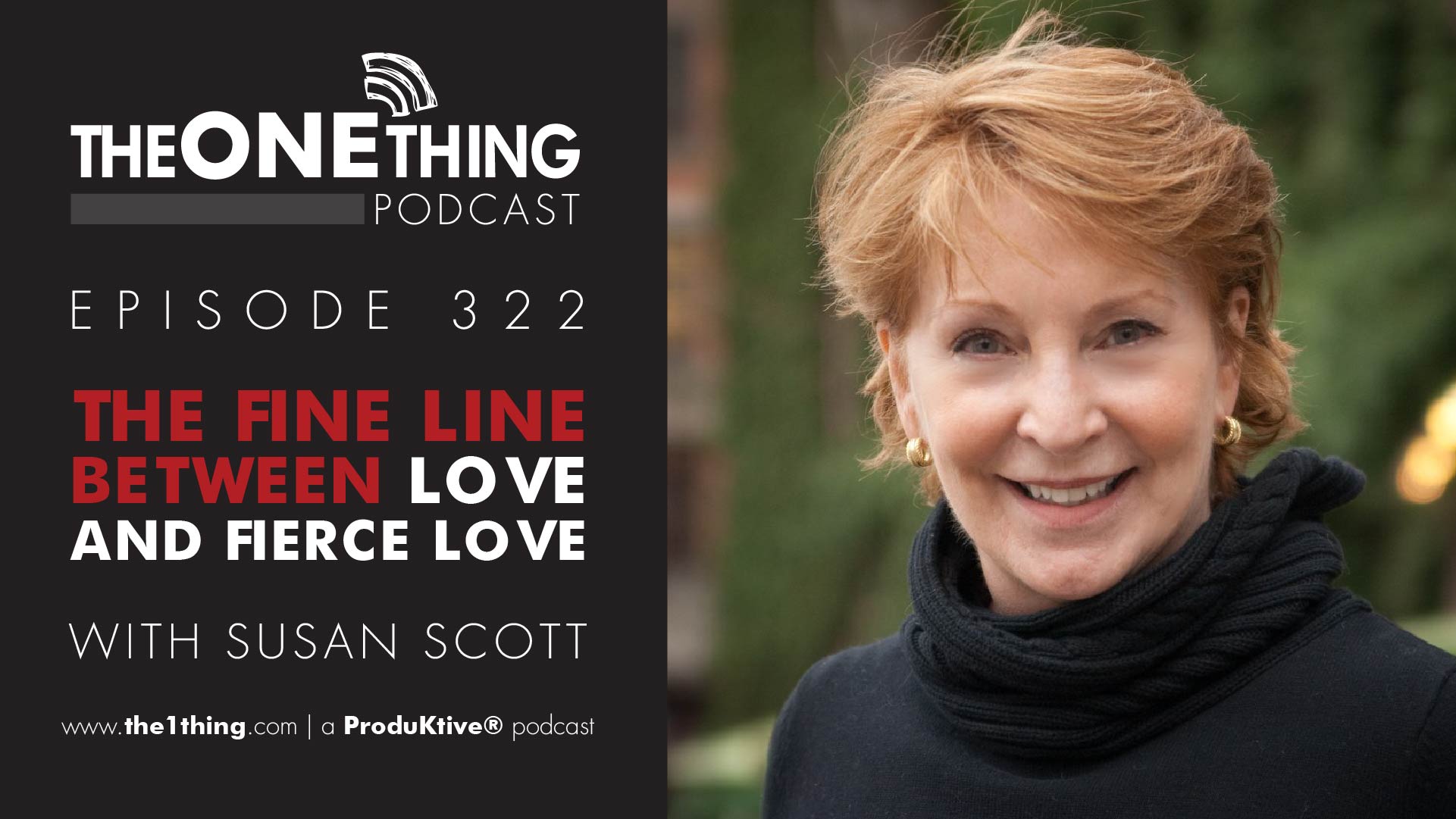
The Fine Line Between Love and Fierce Love with Susan Scott
Do you know the questions you should ask to ensure a happy, fulfilling, and lasting relationship? More importantly, do you know who you ask them to? (Hint: sometimes, the correct answer is yourself).
Conversations are the backbone of a relationship, but that doesn’t mean we know how to have them. Whenever one stops working, it’s a safe bet that it’s because of a breakdown of communication, be it not ensuring each other knows what’s expected of them, or simply allowing a disconnect to take hold.
Friend of the show and New York Times bestselling author, Susan Scott, founded Fierce in 2001, after 13 years of leading CEO think tanks and over 10,000 hours conversing with senior executives led her to realize that, while no single conversation is guaranteed to change the trajectory of a career, business, or life, any conversation can. This led to her sharing her valuable knowledge in the form of the Fierce book series, starting with the award-winning Fierce Conversations: Achieving Success at Work and in Life, One Conversation at a Time.
Now, she’s turning her insights toward the world of romance with the upcoming Fierce Love: Creating a Love That Lasts, One Conversation at a Time, so she joins us to lay everything out there: where do we go wrong in our love lives and what can we do to align them with our ONE Thing?
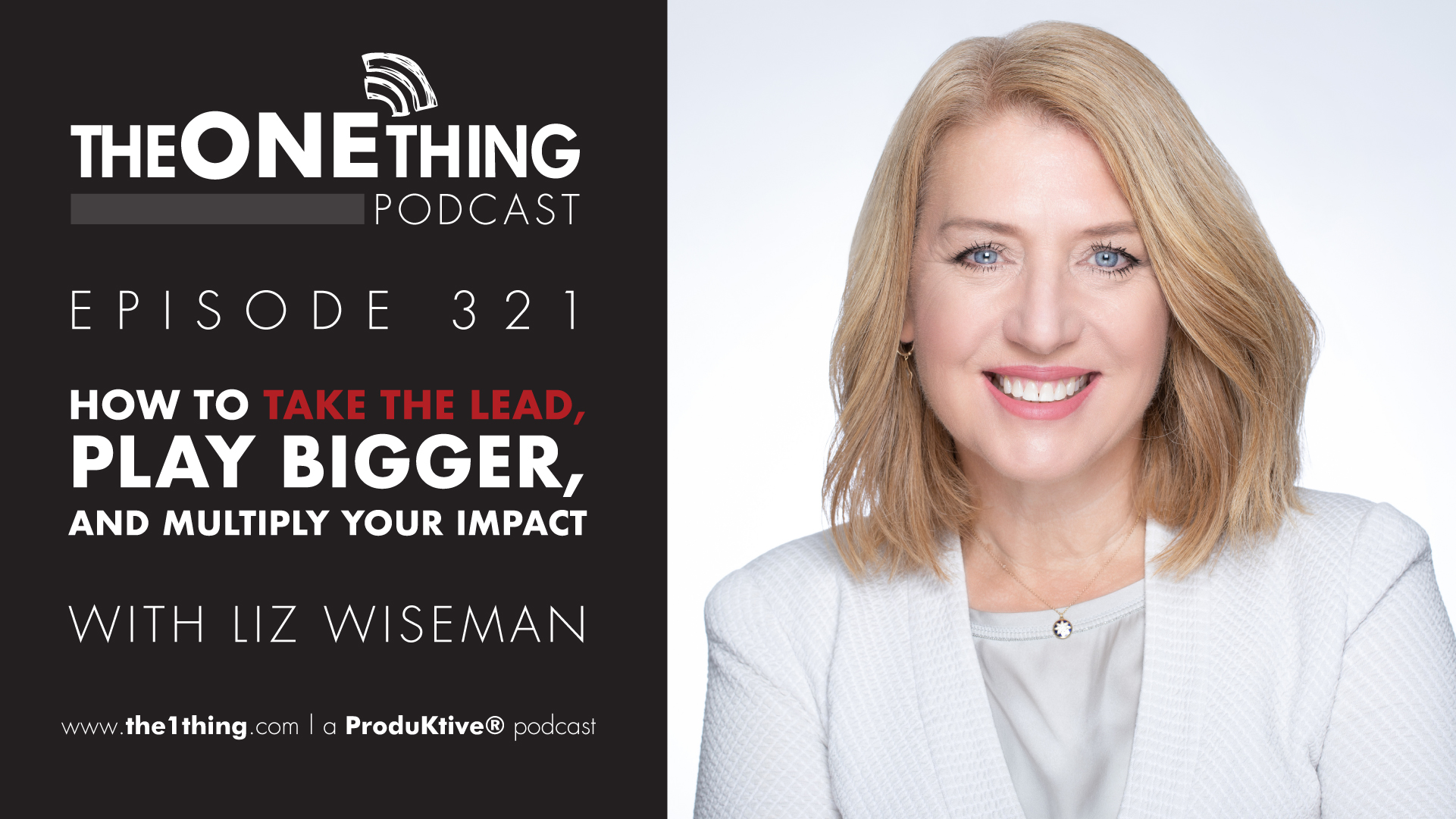
How to Take the Lead, Play Bigger, and Multiply Your Impact
Every organization has it’s impact players – those indispensable team members that you can count on when the stakes are high. And while others do their job, impact players find the job to be done. Whether they’re center stage or behind the scenes, leaders know who these top players are… and they want more of them on their team.
While their impact is obvious, it’s not always as clear what makes these impact players different from their peers. How do you stack your team with people who can make the most impact when you don’t have a proven way of identifying them?
Liz Wiseman invested her career in studying leadership, and, as she did, she became curious about the teams that we lead. She studied top contributors to begin identifying what they are doing differently, and how their mindset could potentially be available to everyone else who wants to contribute at that high level.
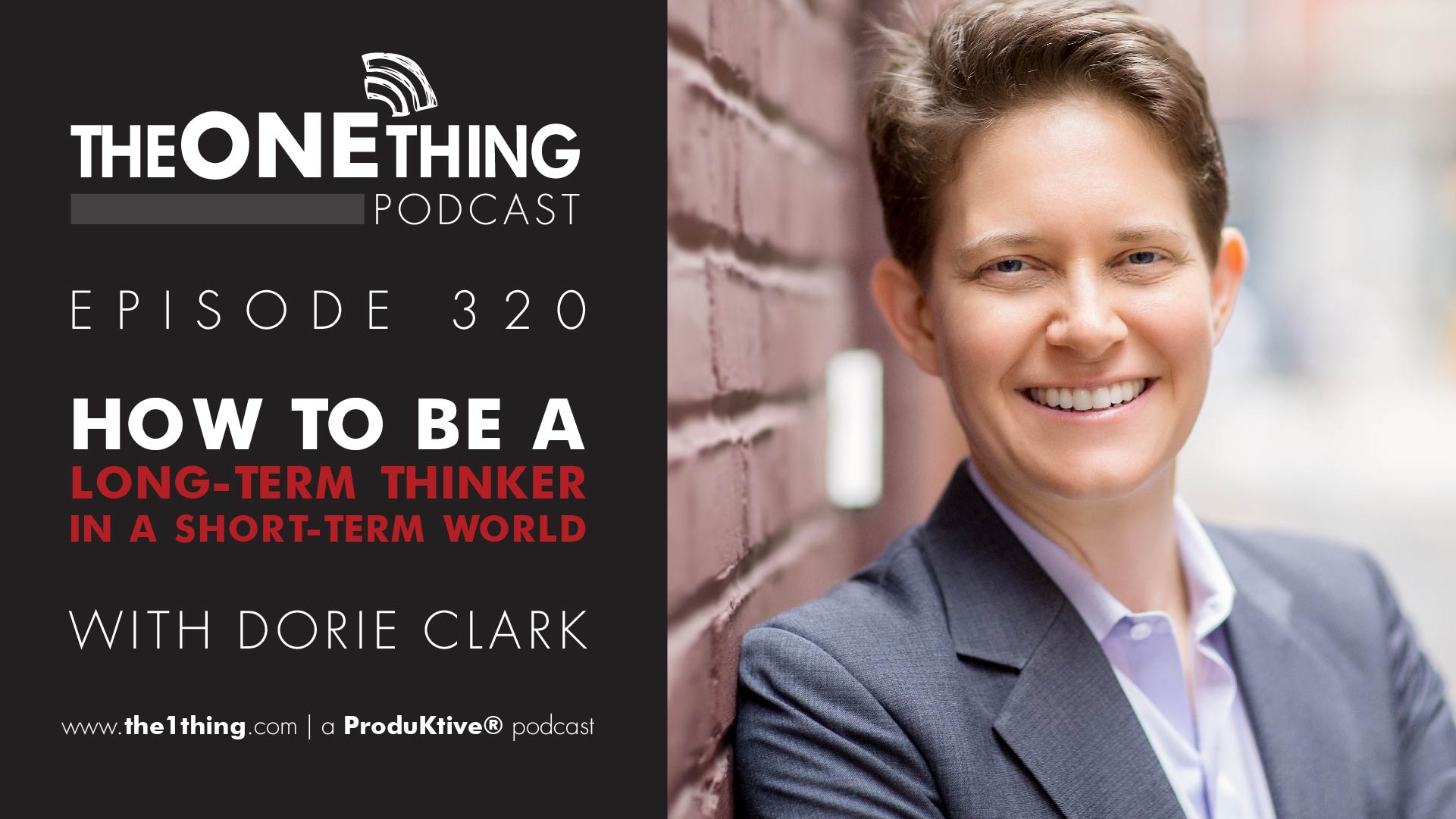
How to Be a Long-Term Thinker in a Short-Term World
Do you ever look at your calendar and find yourself trying to fit the important things – let alone trips to the restroom – between meeting after meeting?
Everyone feels like they have too much on their plate and not enough time. That’s a problem because it leads to us spending our time instead of investing it. When that happens, you may find yourself looking up at the end of the day and questioning what you really got done.
The ONE Thing is about the surprisingly simple system that allows you to go from being busy to being productive. Dorie Clark, bestselling author, has just published a new book called The Long Game, and it is completely aligned with The ONE Thing. We’re going to walk you through what it means to play the long game, how you start creating more white space in your life, and the tools to help you start saying “no” to the things that don’t matter.
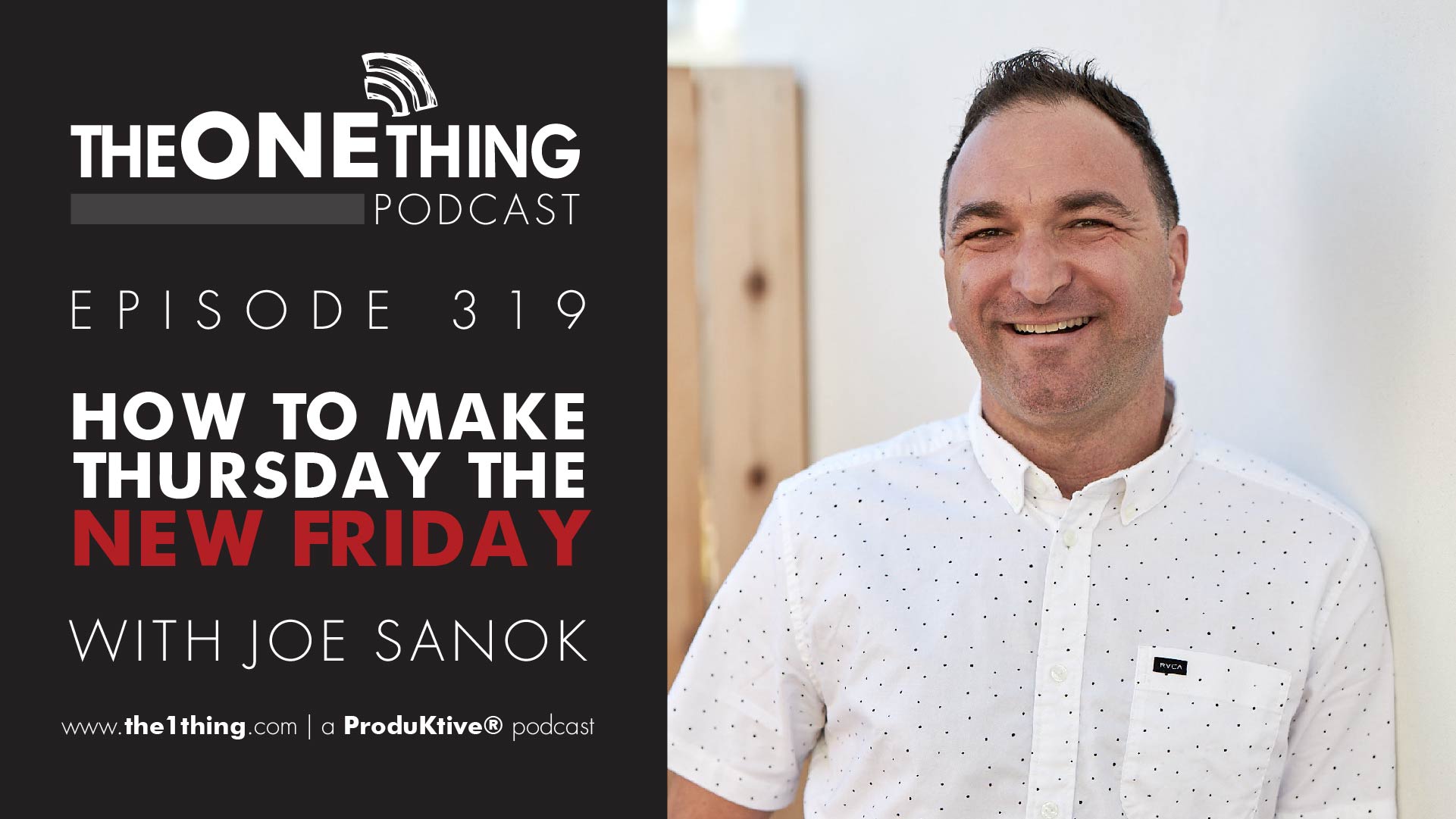
How to Make Thursday the New Friday
Do you understand the history of time? Why do we view time the way we do?
We have a problem with time: the majority of people spend it rather than investing it. They don’t view it as their most valuable resource, and they don’t hold it accountable to delivering a return – personally or professionally.
Joe Sanok is going to help us understand why we view time the way that we do. Early in his career he began asking questions: Why work five days a week? Why not four? What would have to happen to make that possible? What could some of the hidden benefits be? Whether you choose to change the number of days you work is not the point of this conversation, but, rather, the point is to get you to challenge the way you currently view your time, how you spend it, and how you invest it.
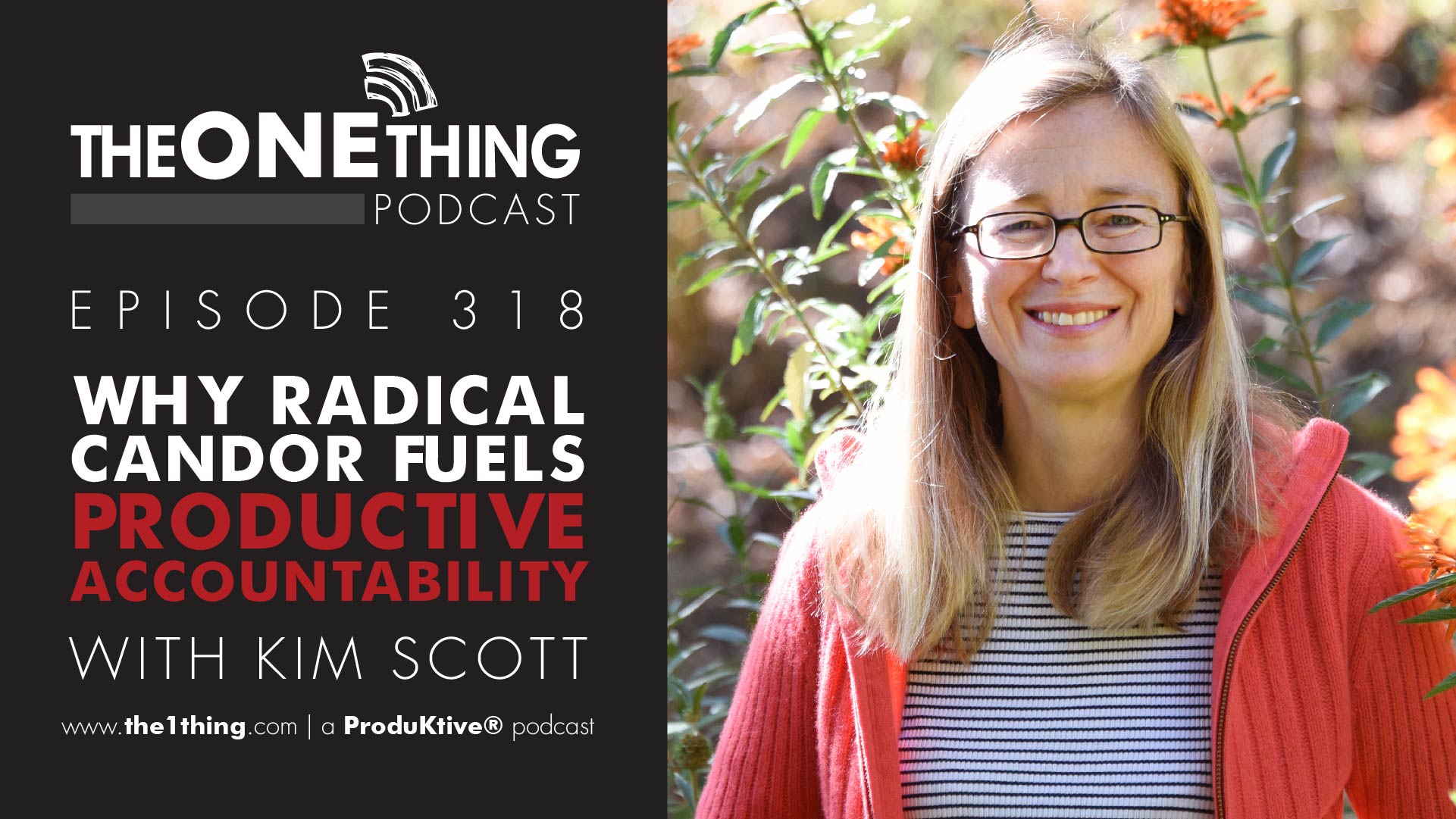
Why Radical Candor Fuels Productive Accountability
Many of us grew up hearing the old adage: if you don’t have anything nice to say, don’t say anything at all. But as you get into the workforce – especially as a leader of people – part of your job is taking a stand for their greatness when they may be fighting for their limitations.
Think about a time when you received some harsh feedback that you ended up being really grateful for. It probably helped you grow as a person. What did they do that made it successful for you? And what would have happened if you had not received that feedback?
At the heart of a successful conversation is what Kim Scott calls “radical candor.” It’s about being candid with people and saying what needs to be said for their benefit. And it’s called “radical” because of how rare it actually is.
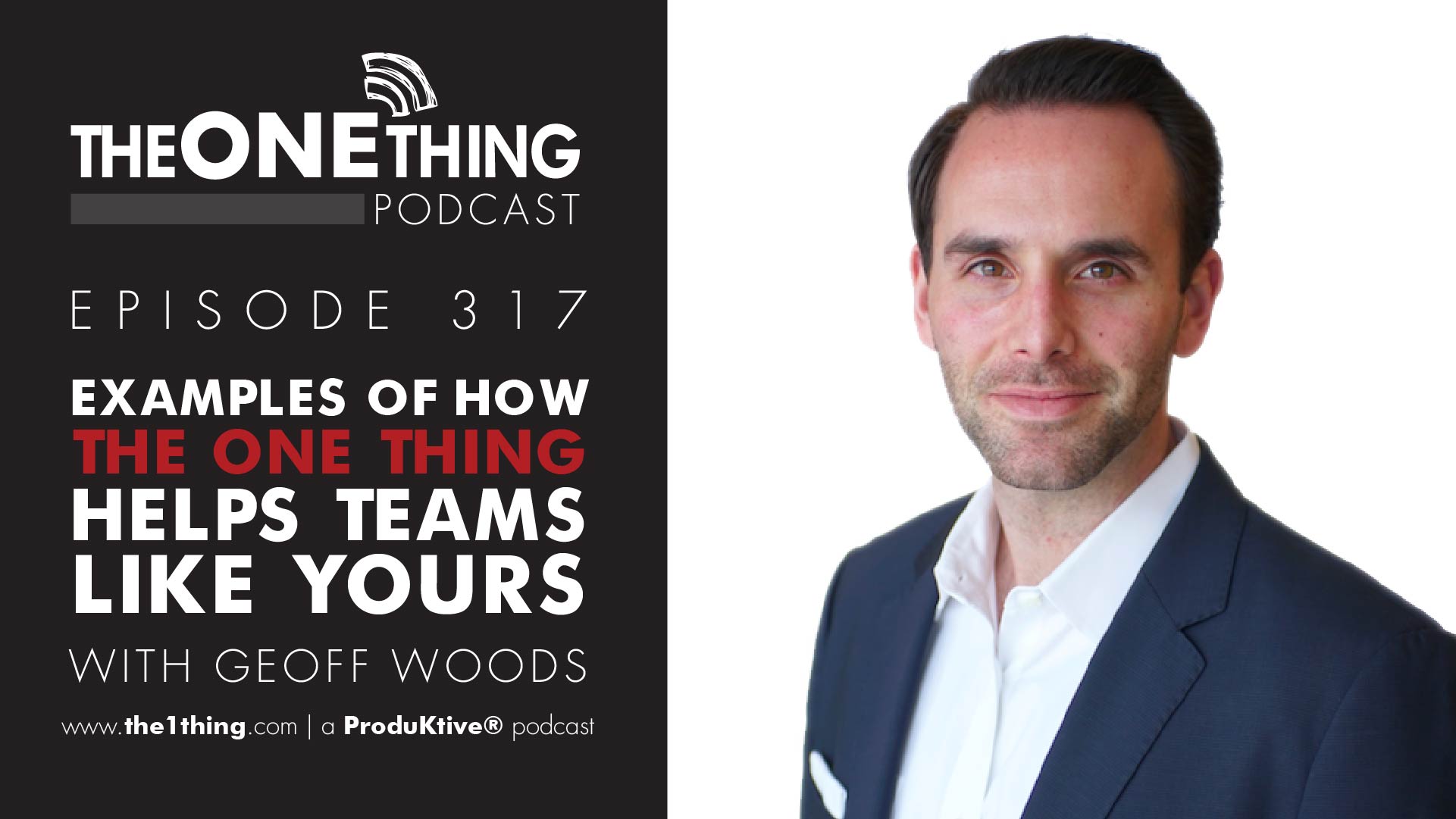
Examples of How The ONE Thing Helps Teams Like Yours
Every single one of us knows what it feels like to have too much to do – and not enough time to get it done. Because, so often, we are spending time instead of investing it, there’s an incredible amount of waste.
But there’s a different approach. There’s a way to see time as the valuable resource it is, invest it into the things that matter most, actually see a return on that investment, and, as a result, get more done in fewer hours with less stress.
Geoff explains this very thing on Phillip Stutts’ The Undefeated Marketing Podcast. He gives examples of how organizations and teams just like yours have used the principles and models of The ONE Thing to shift from being busy to being productive.
